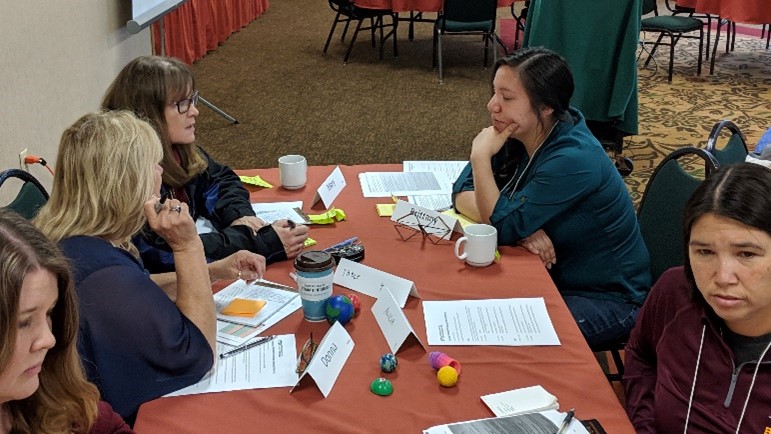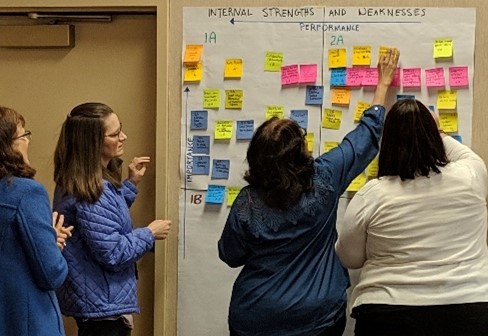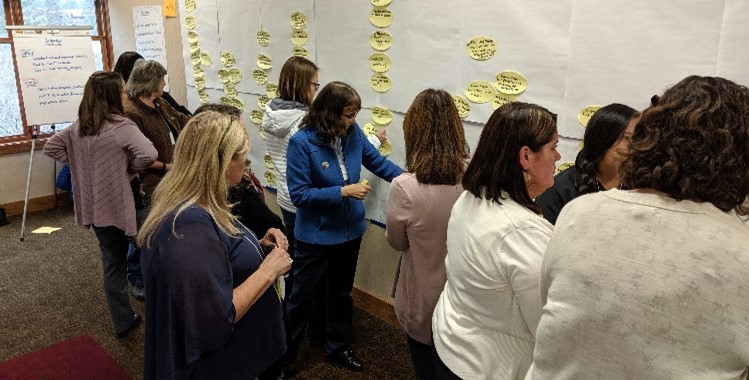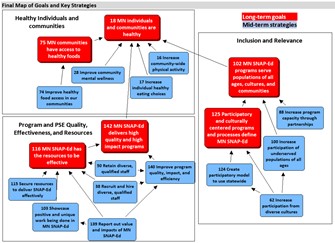Client: Minnesota Department of Human Services (DHS)
Project: DHS is the implementing agency for the federal Supplemental Nutrition Assistance Program – Education program (SNAP-Ed), which works to improve the likelihood that people eligible for these benefits will make healthy food choices within a limited budget and choose physically active lifestyles.
Project successes are highlighted in a peer-reviewed publication by the IBM Center for the Business of Government, and an article published in the International Journal of Partnership Studies
Worked with an inclusive planning team of SNAP-Ed staff and Tribal leads to collaboratively design and implement an engagement process with SNAP-Ed grantees from around the state to help develop a three-year statewide strategic plan. Active grantees were the Bois Forte Band of Chippewas, Fond du Lac Band of Lake Superior Chippewa, Grand Portage Band of Lake Superior Chippewa, Leech Lake Band of Ojibwe, Mille Lacs Band of Ojibwe, White Earth Nation, and University of Minnesota Extension.


The DHS team was committed to reaching consensus among DHS and the grantees, so we jointly designed a robust and inclusive engagement process and implementation plan that clearly identified key stakeholders and worked closely with partners to ensure their substantive engagement and contributions.
Round 1 engagement provided stakeholders with background information and then gathered input on key priorities and needs via an online survey from key stakeholders including Implementing Agency staff, program participants, and cultural guides, and from DHS staff. That input was formally infused into a two-day in-person workshop where grantees completed a SWOT analysis, developed draft long-term goals and mid-term strategies, and began developing a participatory evaluation framework.


We then gathered feedback on those draft goals and strategies from implementing agency staff, program participants, cultural guides, and DHS staff via three live webinars and an online survey. That further guidance drove the final set of statewide goals and strategies, which were supported by a comprehensive set of stakeholder-generated short-term tactics to feed local and state workplanning. We also prepared a thorough framework for a participatory monitoring and evaluation plan, and implementation guidance to support ongoing work.